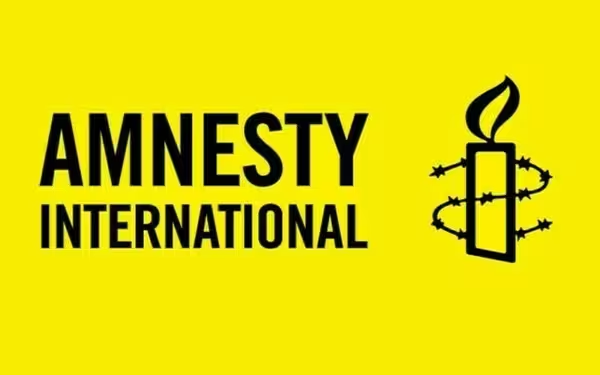Saturday, November 16, 2024 03:21 PM
Amnesty International Demands Investigation into Blasphemy Killings in Pakistan
- Amnesty calls for impartial probe into blasphemy killings.
- Two suspects killed in police incidents raise human rights concerns.
- Public outcry leads to suspension of ten police officials.
 Image Credits: dawn
Image Credits: dawnAmnesty International demands an impartial investigation into the recent blasphemy killings in Pakistan, highlighting serious human rights concerns.
In recent weeks, Pakistan has witnessed a troubling series of events surrounding the killings of two individuals accused of blasphemy. Amnesty International has stepped forward, demanding a "thorough, impartial and independent" investigation into these incidents, which have raised serious concerns about human rights and the rule of law in the country. The first incident occurred on September 12, when police constable Saad Khan Sarhadi shot and killed a blasphemy suspect named Abdul Ali inside the lockup of the Cantt Police Station in Quetta. Just a week later, another suspect, Dr. Shah Nawaz Kunhbar, was killed by police in what was described as an "encounter" in Mirpurkhas.
These tragic events did not end with the deaths of the suspects. Following the killing of Dr. Kunhbar, his family faced a horrifying ordeal when zealots pursued them, snatching the body and setting it ablaze. Amnesty International's South Asia office issued a statement emphasizing that "Pakistani authorities should complete a thorough, impartial and independent investigation into the incidents." The organization further urged the government to ensure that those responsible for these killings are prosecuted in fair and transparent trials, without resorting to the death penalty.
The statement from Amnesty highlighted a disturbing trend in Pakistan, where extrajudicial killings of individuals accused of blasphemy have become alarmingly common. The organization noted that since May, at least four people accused of blasphemy have been killed in mob violence across different provinces. This includes the recent incidents in Umerkot and Quetta, as well as two other cases in Punjab and Khyber Pakhtunkhwa.
In response to the public outcry, ten police officials, including two senior officers from Mirpurkhas, have been suspended. The Sindh chief secretary's order stated that their charge sheets would be issued separately, and they would be stationed at the Central Police Office in Karachi during their suspension. This move has been seen as a step towards accountability, but many are calling for more substantial actions.
Dr. Kunhbar's mother has publicly demanded protection and justice for her son, accusing the police of complicity in his death. She has rejected the police investigation ordered by the Sindh Home Department, insisting on a judicial inquiry instead. Her heartbreaking account reveals a deep mistrust in the system, as she claims that her family had been assured of her son's safety by the police.
In a separate development, two lawyers have filed a bail application for the police constable involved in the shooting of Abdul Ali. This has sparked further controversy, as the victim's family has chosen not to pursue the murder case against the constable, even forgiving him. This decision has drawn criticism from civil society groups, who have condemned the killings as "extrajudicial" and called for a judicial inquiry into Dr. Kunhbar's death.
The Joint Action Committee, a coalition of human rights defenders, has demanded immediate action from key political figures in Sindh, including Chief Minister Murad Ali Shah and PPP Chairman Bilawal Bhutto-Zardari. They are calling for accountability and justice in light of these tragic events.
As Pakistan grapples with these incidents, the need for a robust legal framework that protects human rights and ensures justice for all citizens has never been more critical. The ongoing violence against individuals accused of blasphemy not only undermines the rule of law but also poses a significant threat to the fundamental rights of all citizens. It is imperative for the government to take decisive action to address these issues and restore public trust in the justice system.













